Search Results
Showing results 1 to 19 of 19
Build Your Own Wind Turbine
Source Institutions
Learners construct an electricity-generating wind turbine out of a plastic bottle.

Drain Game
Source Institutions
In this activity (on pages 36-39), learners make a model of a watershed out of paper, then run water down the mountain to simulate how rainfall and pollution affect watersheds.

Kelp Critters
Source Institutions
This marine biology activity (on pages 11-17) introduces learners to kelp (seaweed) forests that grow in the ocean and are home to many species of sea animals.

Water Clean-up
Source Institutions
This is an activity (located on page 3 of the PDF under Water Clean-up Activity) about the use of reduction agents to decontaminate ground water.
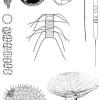
The Great Plankton Race
Source Institutions
In this activity, learners are challenged to design a planktonic organism that will neither float like a cork nor sink like a stone.
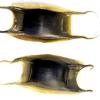
Mermaid's Purse
Source Institutions
In this activity (page 2 of pdf), learners craft a model of a skate egg case and come to understand that cartilaginous fish such as sharks and shakes employ reproductive strategies that differ from th
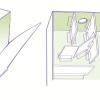
Old Faithful Plumbing Investigation
Source Institutions
This activity (located on page 3 of the PDF) is a full inquiry investigation into mapping the underground “plumbing” of geysers.
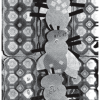
Bee Builders
Source Institutions
In this activity, learners make a model of a beehive using simple materials.
Plants: Hanging Tough
Source Institutions
In this hands-on activity, learners will become familiar with the special adaptations of rainforest plants and discover the conditions needed for tropical trees to survive along with what can impinge
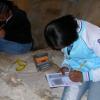
Fossil Age Estimation Model
Source Institutions
In this activity (page 1 of the PDF under SciGirls Activity: Dinosaurs), learners will model how paleontologists estimate the age of fossil discoveries by extracting “fossil” playing cards from newspa

Floodplain Modeling
In this design-based lesson, learners study flood dynamics as they modify a riverbed with blockages or levees to simulate real-world scenarios.

Walk On Water Bugs
Source Institutions
In this activity (on pages 29-35), learners examine water pollution and filtration.

Mars from Above: Carving Channels
Source Institutions
In this activity, learners create channel features with flowing water, comparing their observations to real images of Mars and Earth taken by satellites/orbiters.
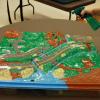
The Watershed Connection
Source Institutions
In this activity, learners interact with a 3-D model of a watershed to better understand the interconnectedness of terrestrial and aquatic environments.

Low-Tech Water Filter for High-Impact Clean
Source Institutions
In this activity, learners consider the water features they might enjoy at a community park--a pond, brook, water playground (or "sprayground"), or pool--and what happens to the water over time.

Teen Moon: Moon Ooze
Source Institutions
In this activity, learners model how the Moon's volcanic period reshaped its earlier features.

Make a Cast of a Tyrannosaurus rex Fossil
Source Institutions
In this activity, learners explore dinosaur fossils by making cast models of a T. rex. First, learners read about and research how dinosaur fossils form.

Water Cycle in a Bag
Source Institutions
In this activity, learners create a biosphere in a baggie.

Crumple a Watershed
Source Institutions
Learners gain an intuitive knowledge of the physical aspects of watersheds by creating their own watershed models.
